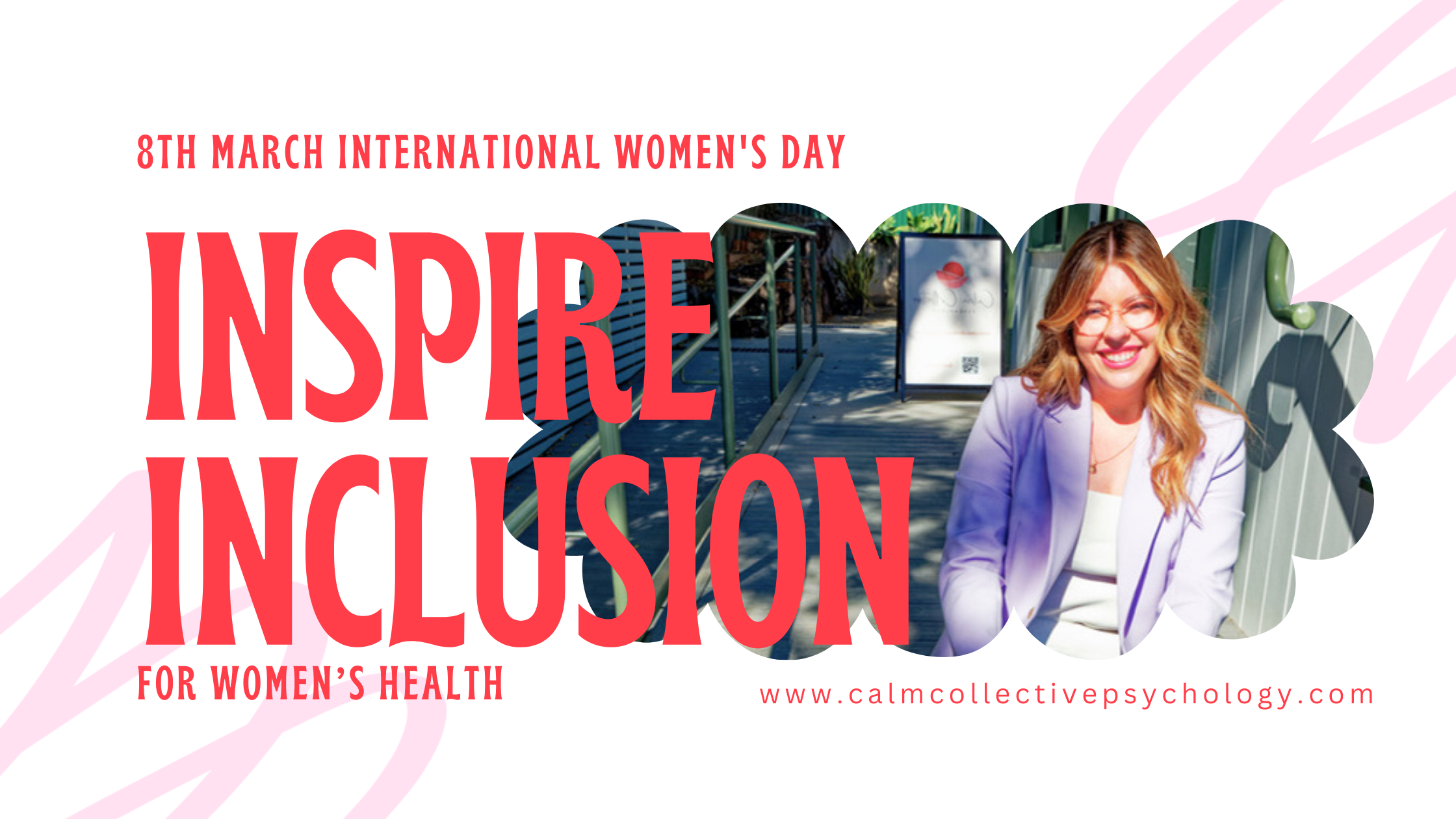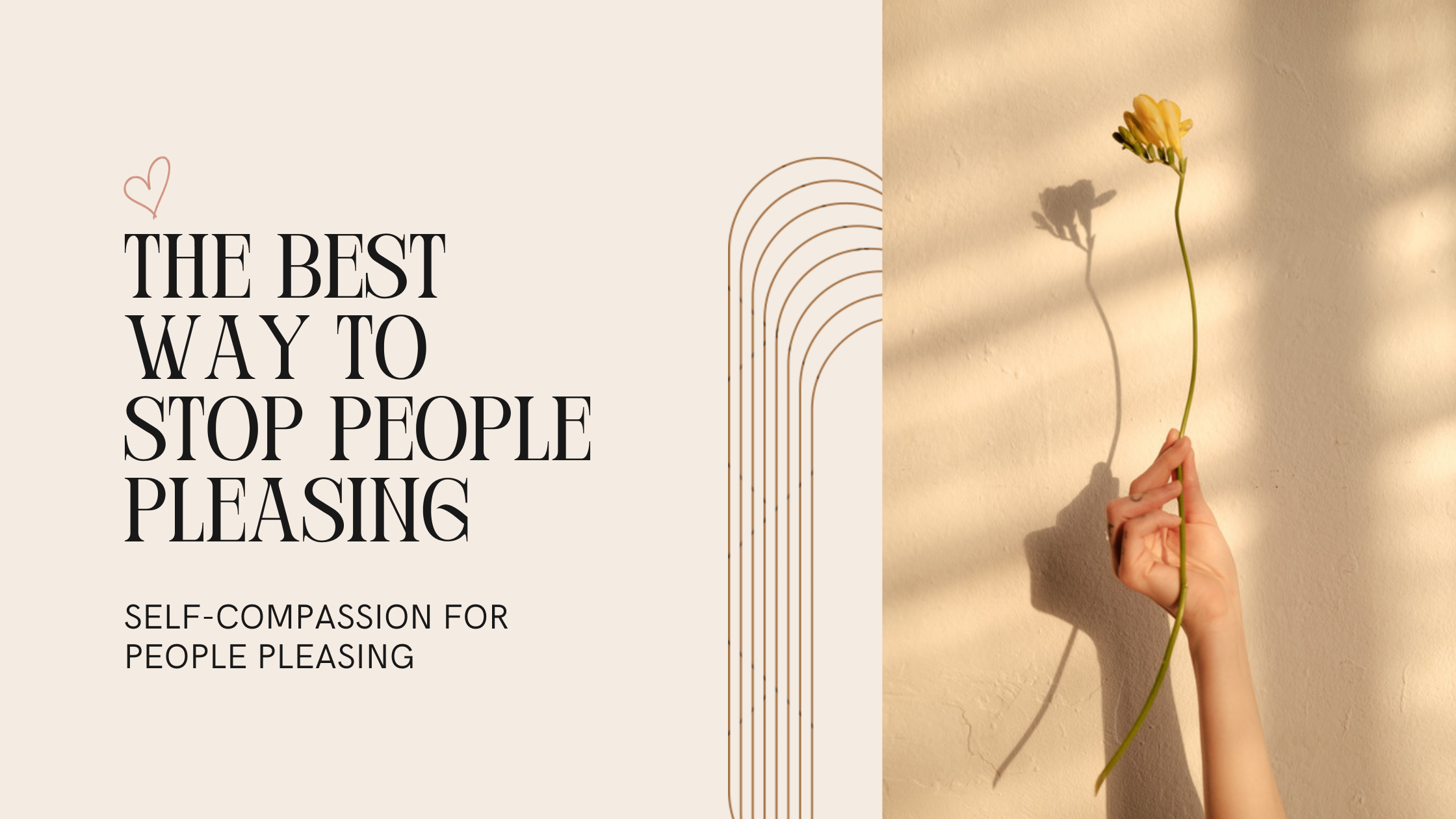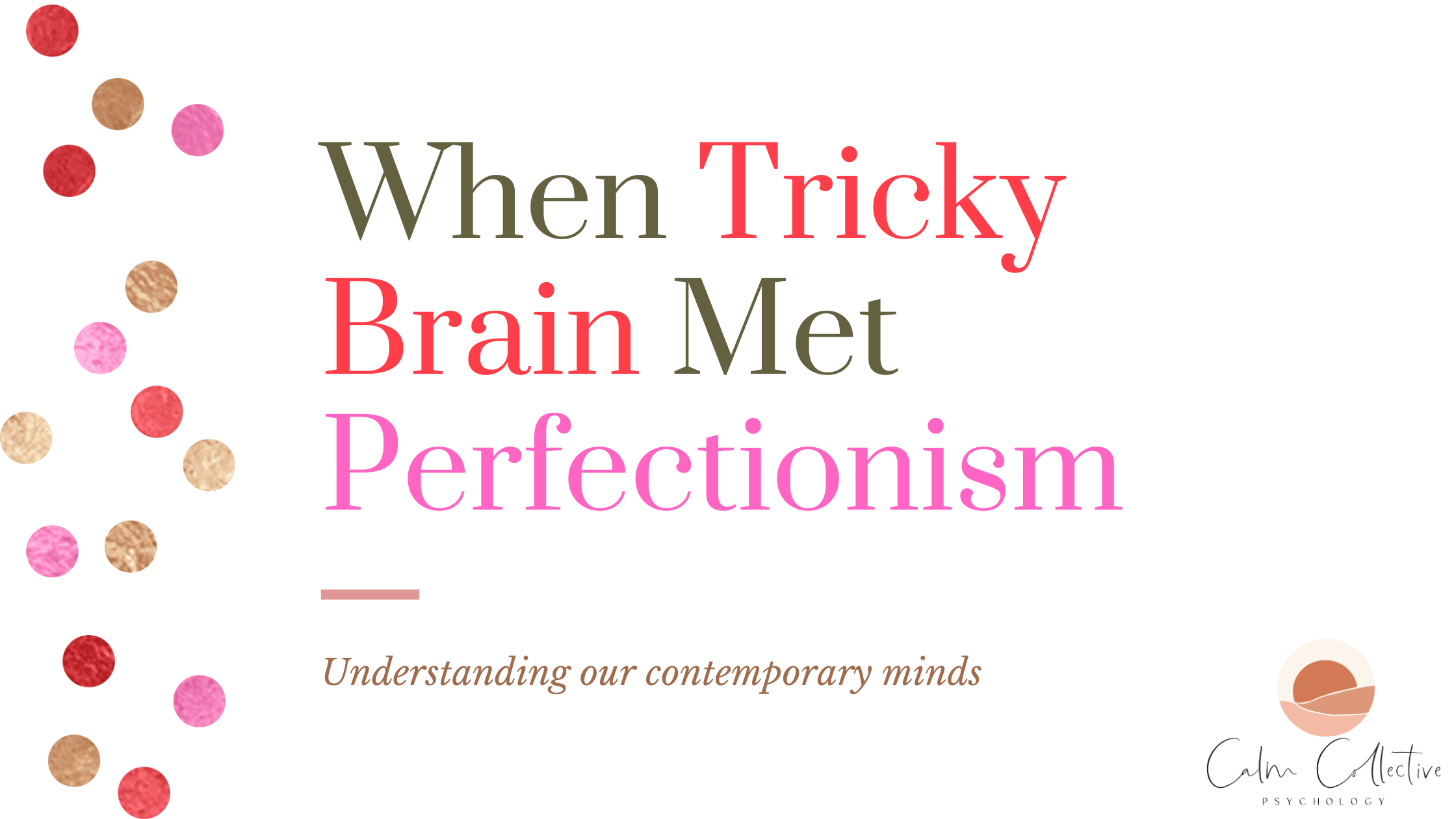Inspire Inclusion for Women’s Health
International Women’s Day, 2024 - Inspire Inclusion for Women’s Health.
Happy International Women’s Day! Let’s talk about why women’s health is so important to me, you and our society.
Disclaimer – for IWD, we will refer to women’s experiences of healthcare throughout. However, the unique experiences of trans and non-binary humans are honoured, respected and also need inclusion within our healthcare system.
You may have noticed the power of pink – it is considered to be the most soothing colour, after all! This week has been a ripple of pink across our socials, including our emphasis on women’s health and people pleasing.
Women play a crucial role in our society, making up more than half the humans on this planet. Women take on most of the caregiving needs of our society, in one way or another. Yet we have inadequate support available to women, with limitations in research and intervention for many women’s health issues – including menopause, which all people with a womb experience.
But what do we mean by women’s health? Isn’t that just human health?
Women’s health refers to the specific experiences of female bodies which are affected by unique hormonal transitions like puberty, pregnancy, and menopause. These times of transition have a huge impact on our mental and physical health. Women’s health also includes dysregulated hormonal issues such as PMDD, PCOS, and endometriosis, and concerns around sexual health and intimacy.
Women’s work, relationships and health suffer when we do not provide appropriate support around these concerns. Take menopause as an example – most women report negative impacts on their relationships and worklife, as well as many intense symptoms. Yet there is no mandatory training on menopause for health providers within their training. Moreover, there’s a lot of misinformation and stigma around these conversations.
There’s so much wisdom that women have to share, creating opportunities for self-growth and change. As the theme for International Women’s Day this year is ‘Inspire Inclusion’, I’d like to propose a health revolution, starting with the choices I made. Maybe you’d like to do the same?
Today, I will choose women’s health-informed practitioners for my health needs.
Today, I will prioritise my own needs with compassion.
Today, I will validate how much my body and mind goes through each month.
Today, I will offer the women around me the support they need to take control of their healthcare.
Let’s start a conversation around this on Instagram – come and share your thoughts! @calmcollectivepsychology
Warm wishes,
Grace (she/her)
Self-Compassion for People Pleasing
The run down on people pleasing and why self-compassion can be our most powerful tool for overcoming it.
The run down on people pleasing and why self-compassion can be our most powerful tool for overcoming it.
People pleasing
There is a resounding commonality to the experience of people pleasing, which links to our thoughts of ‘not good enough’ and feelings of guilt, shame and resentment.
By definition, people pleasing is putting other’s needs before your own with the goal of making others happy, keeping the peace, or avoiding conflict.
Emma Reed Turrell, author of Please Yourself: How To Stop People-Pleasing And Transform The Way You Live, theorises 4 types of people pleasers.
The Classic – going out of their way to do more than necessary to make others happy to to get appreciation from others (aka to be liked)
The Shadow – someone who often makes themselves the side character to prioritise others’ goals and desires
The Pacifier – avoiding conflict by avoiding displeasing others, the one who doesn’t rock the boat and often the ‘peace keeper’ of their circle
The Resistor – on the surface, they don’t care what others think, but deep down they are highly affected by worries and pressure to please others
You can find a lot of advice for people pleasers along the lines of ‘just say no’. Picture this – someone who is strung out with anxiety, trying their best to hold it together, told to take the most risky path which is likely out of their skillset. That would be distressing for anyone!
People pleasers usually lack practice in being assertive, identifying their own needs, and resolving conflict in balanced ways. It’s threatening to have to learn these uncomfortable skills.
Our nervous system and our tricky brain say NO before we could ever tell our friend “no, we won’t drive two hours for brunch” or tell our boss “no, I won’t take on unpaid overtime.”
Self-compassion
So our threat system is firing, right? What can we do to soothe it?
Self-compassion! The hero of our soothe system! Oxytocin boosting, self-compassion has been found to improve hormone regulation, reduce stress, and improve immune function.
Self-compassion is the reassurance that we are enough, just as we are, human and all. It can soothe the worries of people pleasing, turn off the threat system, and give us the choice to prioritise our own needs. It helps us to regulate our emotions, learn the necessary skills like assertiveness, and tolerate the discomfit of other people’s disappointment.
I’ve come up with a quick self-compassion activation for people pleasers to help you try this out.
First – get comfy, with your feet flat on the floor, your breath soft and rhythmic, and your hand over your heart
Affirm – repeat these phrases in your mind in a warm and friendly inner tone:
‘I am already enough, exactly as I am’,
‘It is not my responsibility to guess how other people feel, it is their job to tell me’,
‘My needs and desires matter’,
‘I am my biggest ally in this world.’
I hope this can be your first step forward into a life where you prioritise your own joy.
Warm wishes,
Grace
When Tricky Brain met Perfectionism
The month of love, the foreign prince, and my greatest weakness...?
One thing about me is that I would not say ‘perfectionism’ if someone asked what my greatest weakness is (I’m not sure what I would say, because let’s face it, it’s a weird question).
But I am passionate about perfectionism becoming a central concept in therapeutic conversations. Research has shown that perfectionism underlies harmful mental health conditions for many. It is a critical component in understanding how our tricky brain got so out of sorts.
Perfectionism is defined as ‘trying to perfect an imperfect self in an unobtainable pursuit’. Key characteristics are insecurity and shame – understandably when the central belief is that we are imperfect and flawed.
You can see why I’m not bragging about this at job interviews, hey?
One big problem with perfectionism is the link to our inherently tricky brain, whose purpose is to keep us as safe as possible AT ALL TIMES. Often through avoiding social judgement.
This feeds into a cycle where the inner critic screams at us that we are not good enough, while the tricky brain panics over what other’s will think of us and how this will affect us.
Now I would not say tricky brain is my greatest weakness either, because we all have one. It’s unavoidable! It’s trying so hard! Please give it some credit for all that effort, then gently send those thoughts on their way.
Choosing this topic, I wondered if you might have heard enough about perfectionism already. At the same time, the start of the year was going at lightning speed around me and I could feel the topic coming up more and more. Moreover, I noticed that we don’t talk about it very much. (Not dinner party conversation, hey long time readers!)
And it’s February, the month of love, so these two soulmates are ‘perfect’ to discuss.
Dr Russ Harris introduced the concept of the ‘not good enough storyline’ to me when I was training in Acceptance and Commitment Therapy. I think this can be gold for perfectionists. It’s like a filing cabinet for all of your imperfect, flawed, self-critical thoughts. When you notice them, fondly greet them: ‘Ah, there it is again, the not good enough storyline. I already know that one.’
It's a way of saying that we’ve heard it all already. We’ve given the energy to it and the investment did not return. The ‘not good enough storyline’ is like our junk mail folder, where we can say ‘thank you for the offer of $60 MILLION, Mr Foreign Prince, but it’s not for me.’
‘Thank you for the offer of being perfect, My Tricky Brain, but it’s not for me.’
I hope that you can change your perfectionism to humanism, one tricky thought at a time.
Warm wishes,
Grace
Subscribe to our newsletter.
Sign up to receive updates from us and notifications of new posts on the Calm Collective Journal. Infrequently, but hopefully right when you need them.






